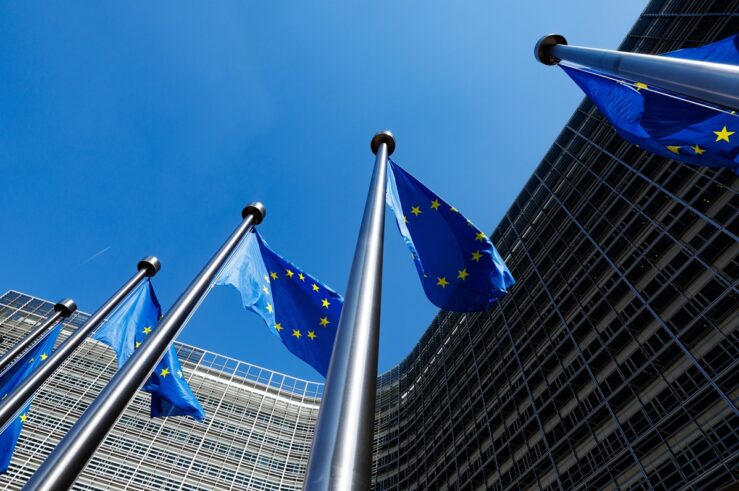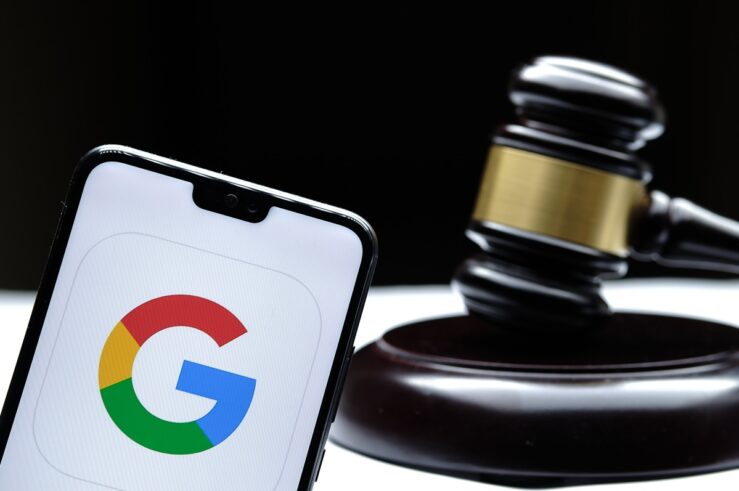Showing results for: “digital markets act”
Antitrust at the Agencies: Just When I Thought I Was Out Edition
Noncompetes have been a subject of much interest here at Truth on the Market (see Alden Abbott, Brian Albrecht, Corbin Barthold, Gus Hurwitz, Richard Pierce Jr., and your humble-if-obsessive scribe here, here, here, here, and here). They’re also something I’ve studied independently—first, at the Federal Trade Commission (FTC) and then, for example, here. I was ... Antitrust at the Agencies: Just When I Thought I Was Out Edition
Europe’s Latest Antitrust Policy Pronouncement Threatens Innovation
A newly released draft of the European Union’s proposed monopolization guidelines suggest they could pose a new threat to innovative business practices that promote high-tech economic growth. The EU should scrap the draft and U.S. antitrust enforcers should likewise reject its approach. Overregulation Harms EU Economic Growth and Innovation The United States, not Europe, has ... Europe’s Latest Antitrust Policy Pronouncement Threatens Innovation
Don’t Believe the Hype (on Competition and AI)
As in the Public Enemy song that gives this post its title, the hype about alleged competition risks in the artificial intelligence (AI) “market” is a sequel—and not a good one—to the hyperbolic and dystopian view that has informed several recent antitrust-policy proposals and demands for tougher enforcement of competition laws, particularly in digital markets. ... Don’t Believe the Hype (on Competition and AI)
The Cookie Plan Crumbles: Stuck in the Middle with Google
Google recently announced that it has changed its plans to phase out third-party cookies in the Chrome web browser. The company had previously planned to disable third-party cookies in Chrome, a change supported by many in the privacy-stakeholder community, but which was met with criticism from the adtech industry and competition lawyers. Google’s new plans ... The Cookie Plan Crumbles: Stuck in the Middle with Google
Judge Mehta Got It Wrong in the Google Case
U.S. District Court Judge Amit Mehta ruled in an Aug. 5 order that Google violated antitrust law by improperly maintaining a monopoly. The case focused on “general search engines” (GSEs) used for internet search, and the impropriety was the manner through which Google secured distribution in partnering with internet-browser developers, mobile-device manufacturers, and wireless carriers. ... Judge Mehta Got It Wrong in the Google Case
The $14 Billion Fumble
Even in the era of a Federal Trade Commission (FTC) led by Lina Khan, antitrust law can be a pretty hum-drum affair, consumed with minutiae about relevant markets, market shares, the Herfindahl-Hirschman Index (HHI), unilateral effects, coordinated effects, and possible efficiencies. Things get just a bit more interesting when there are allegations of a conspiracy ... The $14 Billion Fumble
The FTC Case Against PBM Rebates
About a month ago, the Wall Street Journal reported that the Federal Trade Commission (FTC) was preparing an antitrust suit against the nation’s three largest pharmaceutical benefit managers (PBMs), the intermediaries who negotiate drug prices on behalf of insurers and who manage benefits for nearly nine in 10 insured Americans. This development followed a two-year ... The FTC Case Against PBM Rebates
Life Moves Pretty Fast for the FCC in a Post-Loper World
Ferris Bueller famously said: “Life moves pretty fast. If you don’t stop and look around once in a while, you could miss it.” The same could be said for the Federal Communications Commission’s (FCC) latest effort to regulate broadband providers under Title II of the Communications Act, under what is commonly referred to as “net ... Life Moves Pretty Fast for the FCC in a Post-Loper World
U.S. Antitrust Enforcers Should Reject AI Interventionism
The U.S. Justice Department (DOJ) and Federal Trade Commission (FTC), in tandem with their fellow competition-law enforcers from Europe (the European Commission) and the United Kingdom (the Competition and Markets Authority, or CMA), issued a joint statement July 23 titled “Joint Statement on Competition in Generative AI Foundation Models and AI Products.” This joint statement ... U.S. Antitrust Enforcers Should Reject AI Interventionism
Ms Vestager: Do Not Tear Down This Wall
The European Commission appears resolved to tear down Apple’s “walled garden.”[1] Following a complaint filed by Spotify, the Commission has already fined Apple an exorbitant €1.8 billion for allegedly abusing its dominant position in the market for distributing streaming-music apps to iPhone and iPad users (a case where Apple was found to be dominant in ... Ms Vestager: Do Not Tear Down This Wall
Federal Regulatory Reform Will Benefit All Americans
The next president, whether a Democrat or a Republican, should place a high priority on federal regulatory reform, in order to promote good jobs, vibrant firms, and a stronger American economy. Regulation is, of course, appropriate to address such problems as public health and safety and environmental pollution. But a growing body of scholarship finds ... Federal Regulatory Reform Will Benefit All Americans
No Kids Allowed: KOSA/COPPA 2.0 Will Encourage the Exclusion of Minors Online
An important lesson of economics is that policies intended to help a targeted group of people often end up harming them in unintended ways. For instance, economists have long argued that policies like rent control and minimum-wage laws actually tend to lead to shortages in housing and jobs, respectively. Similarly, despite having the stated intention ... No Kids Allowed: KOSA/COPPA 2.0 Will Encourage the Exclusion of Minors Online
















